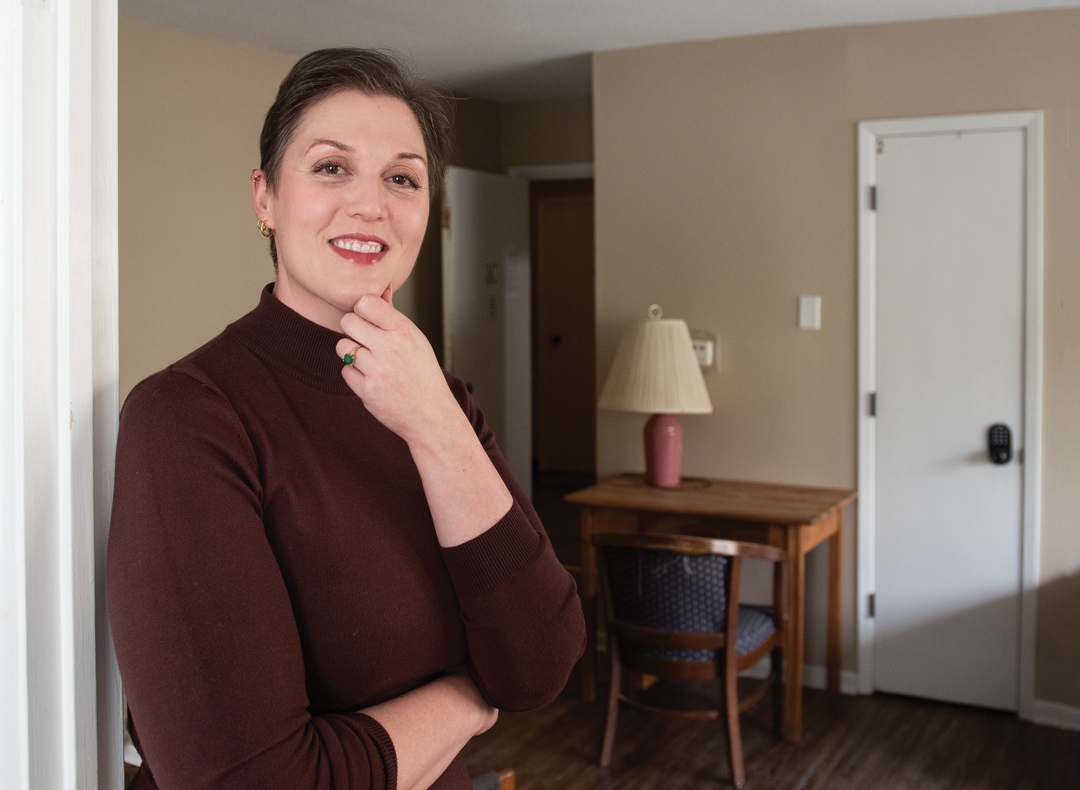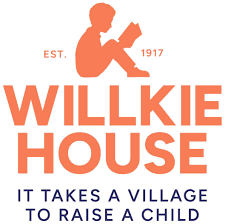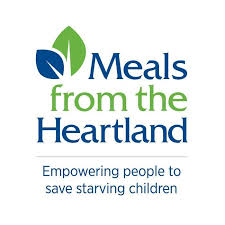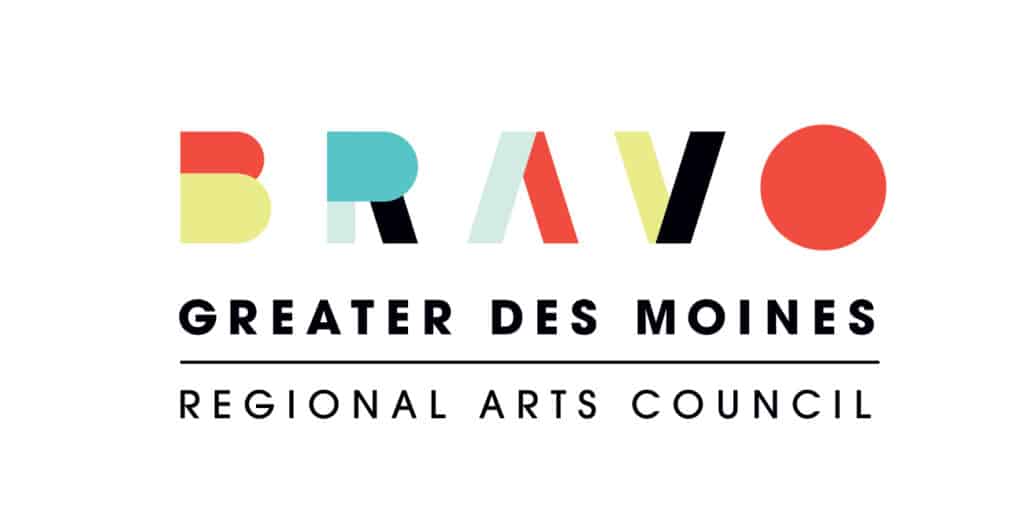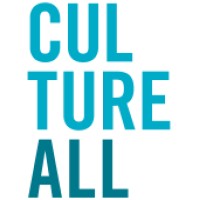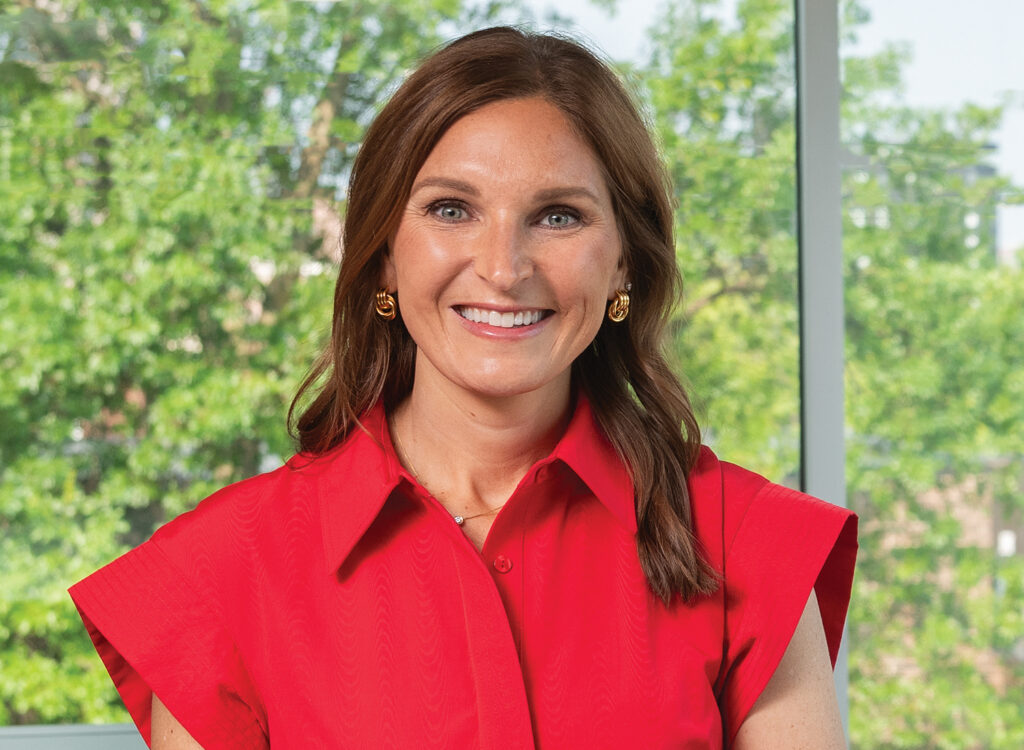A Closer Look: Amy Landrigan
Executive director, the Beacon
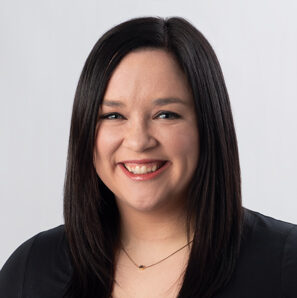
Macey Shofroth Apr 25, 2025 | 6:00 am
6 min read time
1,367 wordsA Closer Look, Nonprofits and PhilanthropyAmy Landrigan gets a bit choked up when speaking about her work as executive director at the Beacon.
Serving women and supporting them through trauma and barriers feels like the perfect landing spot for everything she’d hoped to do in her career.
“Have you ever had something where it lines up so perfectly with everything you’ve ever wanted to do? It just felt meant to be. It’s like everything I’ve ever done in my career had a reason that has brought me here to this moment,” Landrigan said.
Landrigan took over as executive director of the Beacon from Melissa Vine in December 2024. The nonprofit provides housing and programming to those who identify as women that have experienced trauma and inequity.
She previously worked in the behavioral health care space caring for older adults and as a Medicaid auditor. She joined an organization called Psychiatric Medical Care, where she managed intensive outpatient therapy units, and moved to Des Moines when they acquired another company here.
She and her husband quickly fell in love with Des Moines during a weekend visit, eventually attracting her parents to move to the area, too. They’ve now lived here for four years.
Landrigan has also spent time as director of mission services for Goodwill of Central Iowa and vice president of strategy and venture at Central Iowa Shelter and Services. She decided to apply for the Beacon’s executive director job when it opened last year.
“It’s empowering women, developing women while still working in a behavioral health care-type space and a trauma-informed environment,” Landrigan said. “I’m also a master certified life and development coach, so that was a perfect match as well.”
The Business Record sat down with Landrigan to talk about the Beacon and her experiences in her first four months as executive director. Her answers have been lightly edited for clarity and brevity.
What has driven you to work with vulnerable populations throughout your career?
I was really involved in my community, even from a young age. We had older people in our neighborhood where our church was and my dad always encouraged me, “Let’s go rake some leaves. Let’s go help clean up snow.” Let’s help people that maybe don’t have the privileges that my family has. My parents both had their own obstacles and opportunities growing up, but they taught me to always make sure that you’re taking care of the people around you in that way and make sure that we’re all there to take care of each other. I spent most of my summers on the farm, and my grandparents taught me that you want to help your neighbors because when you work on a farm, when you’re in a rural area, and the weather’s bad we’d go out and help other farmers in the area.
Can you talk about the Beacon’s mission and your work within that?
We create environments for women and those who identify as female to thrive and feel empowered. We have our shelter, which is considered transitional housing and is a certified recovery program. We help women recover from whatever trauma or crisis they’ve gone through, so that could be domestic or sexual violence, homelessness, addiction. Around 40% of the women in our house right now came directly from incarceration. We have case management and therapists on-site. We make sure that by the time they graduate, they have at least $600 in their savings.
We also have the Village, which is our affordable housing. It’s independent living and it’s also a recovery program, so it’s sober living. They’re paying their rent. They can live there for as long as they want, and it’s still a safe space where they can continue to thrive.
For my role, the first 30 to 90 days you’re a listener, you’re a learner, getting to know not only the staff and our board members and our community and our partners, but the women in the house and the village. Sometimes I get into the office at 6 a.m. to have tea and coffee with some of the early risers. I’m working with our team to make sure our program is fitting what the needs are for these women but also remaining compliant with everything we need to do. And really working with other partners across the continuum of care to understand what does the community need in the next three to five years? How can we play a part in meeting those needs? How do we truly work together?
What do you wish more people knew about the population served by the Beacon?
So many of our women have felonies, they have backgrounds, maybe they’re struggling with addiction. There are some people that think, “Oh, they chose to do that.” Of course, there are choices. Accountability is a huge part of our programming, to understand, how were you a part of that piece of your life and how do you make sure it doesn’t happen again? But I wish more people, specifically employers when interviewing women from the Beacon or the Village, understood that everyone has the ability to rewrite their story, and to give them a real first chance at a successful life.
What do you think the Des Moines community can do to better serve this population of women and people?
When you meet someone or talk to someone for the first time, when you’re interviewing somebody for a job or you see someone at the grocery store, take a moment and really give that person time to show you who they are, who they want to be, and give them opportunities. There’s so many people here that it’s not that they don’t want to work, it’s that they’re afraid. Or we have one gal who has interviewed at 15 places this week. The minute she explains that she’s at the Beacon, they’ll end the interview. I wish more people would be open to understanding that everyone deserves a chance to rewrite their stories.
On a policy level, we work with Reform Iowa. I would encourage everybody to Google them and understand the legislation that they’re working toward. We help them understand what our women go through so they can work on legislation to change things for women who have a background or been incarcerated.
What kind of unique nonprofit leadership do you bring to the Beacon?
I try to explain that my role is truly service-oriented. I’m serving them and supporting them. One of my team members today was laughing and said, “You’re so boots on the ground.” That’s important to me. It was important to me in every job I’ve had to make sure that I know the people I’m serving and supporting. It’s hard to support someone when you’re eight degrees separated. When a woman feels like something’s happened in the house that was not fair, to make sure she feels heard shows that person that you are worth your voice. You’re worth advocating for. Even if we end up talking and I go, “Yeah, there is a rule there. We talked about that.” She knows I care. She knows I’m hearing her.
What brings you happiness outside of work?
My husband and I have rescued several animals. I love taking care of animals. We foster-failed, so now we have too many pets, but I love that. I’m a firm believer in movement for mental health. I like to move at least 45 minutes a day, whether that’s yoga, jumping on my rower, riding a bike or dancing. We love to take walks and be outside. That’s one thing I love about Des Moines — you’re close to the city and there’s everything you need, but you can go rural really quickly and be around nature. I really spend a lot of time with my family. I really believe in taking care of yourself so you can take care of other people.
At a glance
Age: 35
Hometown: St. Charles, Mo.
Family: Husband, Matt; a dog, Greg, and rescued cats Alfred, Gatsby, Waffles and Roxy
Education: Bachelor’s degree in psychology and gerontology from Missouri State University and a master’s degree in nonprofit civic leadership from Drury University
Contact: director@thebeacondm.org

Macey Shofroth
Macey Shofroth is the Fearless editor at Business Record. She covers gender, nonprofits and philanthropy, HR and leadership, diversity, equity and inclusion.

